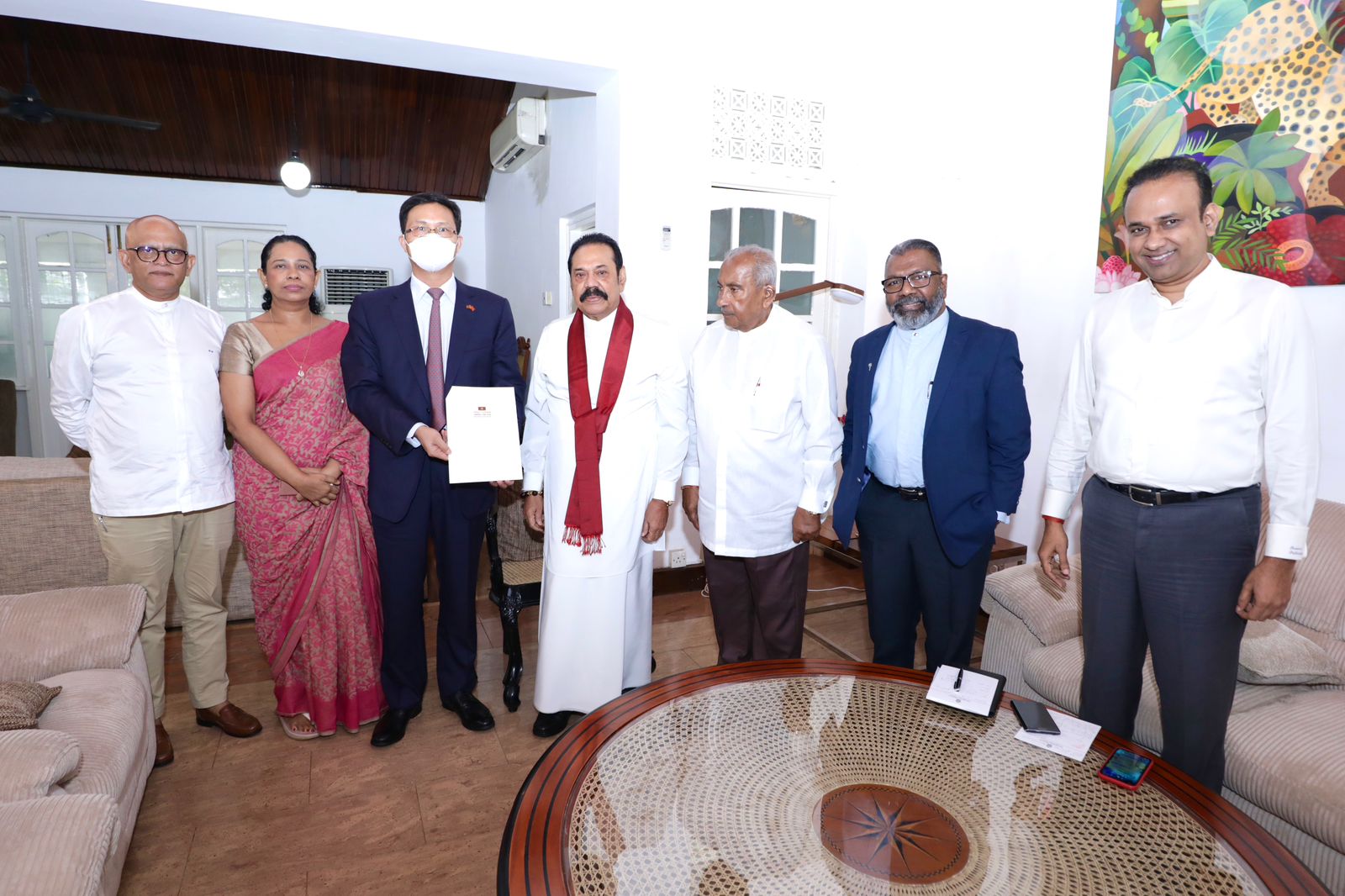
On Friday, China’s ambassador to Sri Lanka Qi Zhenhong visited disgraced former Prime Minister Mahinda Rajapaksa.
During their meeting, the Chinese envoy and former Sri Lankan premier exchanged pleasantry
Rajapaksa handed the ambassador a letter addressed to Chinese premier Xi Jinping, congratulating the Chinese leader and describing the 20th National Congress as a new milestone. The Chinese envoy and former Sri Lankan president reportedly discussed strengthening relations between the two countries; supporting the travel of students and businessmen between the two countries; and, securing economic support for Sri Lanka.
Despite being forced out of office in May, Mahinda Rajapaksa is still viewed as a power broker within Colombo. Following the election of President Ranil Wickremesinghe, Rajapaksa claimed to have put him forwards. In a rally in the city of Kalutara, in the Western Sinhala province, Rajapaksa told the crowd:
“We scolded Ranil back then. But Ranil is with us now, so we sing his praises. I believe he has chosen the correct path now”.
Behind the scenes, the Rajapaksas are reportedly planning a return to the political limelight with Gotabaya Rajapaksa, launching a secretive PR campaign to clear his image, and is testing opinion polls in villages. The Chinese officials meeting with Mahinda Rajapaksa is a recognition of their continued political salience.
Rajapaksa cultivated close ties to the Chinese administration during his first administration as he secured arms and relied on China to block UN condemnation of Sri Lanka’s genocidal warfare. In his 2015 campaign, at least $7.6 million went directly from a majority state-owned Chinese corporation to Rajapaksa’s campaign expenditures. The Chinese ambassador at the time reportedly openly lobbied for voters to back Rajapaksa.

Relations between China and the Rajapaksa clan soured under the presidency of Mahinda Rajapaksa’s brother, Gotabaya Rajapaksa. His disastrous ban on chemical fertilisers and the instability of the administration eviscerated the confidence of Chinese officials.
Despite this, China has continued to strengthen its ties with Colombo. In August, Sri Lanka permitted the docking on the controversial Yuan Wang 5, which the protest of Indian officials, who alleged that the vessel was a spy ship. During the 51st UN Human Rights Council session, China also went to bat for Sri Lanka, slamming the UN resolution as a violation of Sri Lanka’s sovereignty and accusing member states of using human rights as a means of interfering in the country’s domestic politics.
Even out of office, Mahinda Rajapaksa is still seen to be pulling the strings in Colombo.
